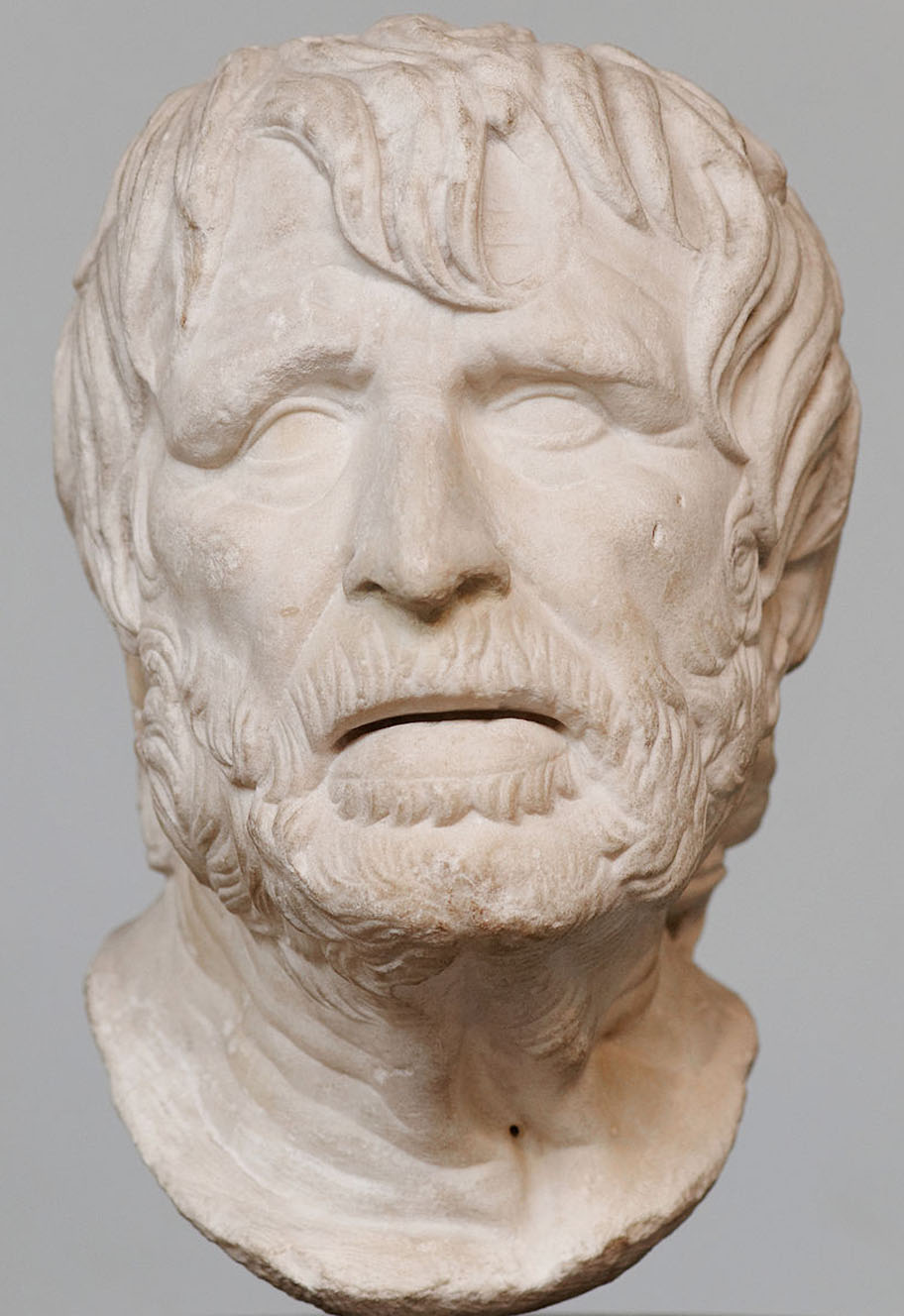Hesiod
Born:
C. 700–600 BCE
Died:
Circumstances uncertain
Hesiod was an ancient Greek poet and one of the earliest known Greek writers. He is often regarded as a contemporary of the epic poet Homer. Hesiod's works, particularly "Theogony" and "Works and Days," are important sources for understanding Greek mythology, cosmogony (the origin of the universe), and agricultural practices of his time. Here are key aspects of Hesiod's life and contributions:
Life and Background: Hesiod is believed to have been born in Boeotia, a region in central Greece, around the same time as Homer. Little is known about his life, and there are no reliable historical records or detailed biographical information. Unlike Homer, Hesiod is often considered a more rustic poet, focusing on practical advice and everyday life.
Works and Days: "Works and Days" is one of Hesiod's major works and is a didactic poem that provides advice on agriculture, rural life, and moral conduct. It includes practical guidance for farmers, information about the seasons, and reflections on human behaviour. The poem begins with a narrative about the dispute between Hesiod and his brother Perses over the division of their inheritance.
Theogony: "Theogony" is another significant work by Hesiod, offering a genealogy of the gods and explaining the origins of the cosmos. The poem details the birth of the gods, their struggles for power, and the creation of the world. Hesiod's account of the succession of gods, including the rise of Zeus to supreme power, is an important source for Greek mythology.
Cosmogony and Mythology: Hesiod's "Theogony" and other fragments provide insights into ancient Greek cosmogony, exploring the creation and order of the universe. The poet recounts the birth of the Titans, the Cyclopes, and the monstrous creatures, as well as the struggles and conflicts among the divine beings.
Catalogue of Women: Hesiod is sometimes credited with a work known as the "Catalogue of Women," a genealogical poem that outlines the lineage of various mythological figures. However, the authorship of this work is debated among scholars, and it may be the product of multiple poets.
Epithets and Imagery: Hesiod's poetry is characterized by the use of vivid epithets, detailed imagery, and a distinctive style that differs from the epic tradition of Homer. He often uses agricultural metaphors and references to everyday life, making his works more accessible to a broader audience.
Legacy: Hesiod's influence extended beyond his lifetime, and his works became essential texts for later Greek poets, philosophers, and scholars. His depiction of the genealogy of the gods in "Theogony" influenced subsequent writers, including later poets and playwrights.
Death: The circumstances of Hesiod's death are uncertain, and little is known about his later life. Some traditions suggest that he died in a violent manner, but the details are unclear.
Hesiod's contributions to Greek literature and mythology have left an enduring legacy. His works provide valuable insights into the cultural and religious beliefs of ancient Greece, and his influence can be seen in later literary and philosophical traditions.

Quick Facts
- Hesiod is often regarded as a contemporary of the epic poet Homer.
- "Works and Days" provides advice on agriculture, rural life, and moral conduct.
- "Theogony" details the genealogy of the gods and explains the origins of the cosmos.
- Hesiod's poetry is characterized by vivid epithets and detailed imagery.
- His influence extended beyond his lifetime, impacting later Greek poets, philosophers, and scholars.
Further Reading
Art &
Architecture
Ancient Greek art and architecture, with its harmonious proportions and timeless elegance, continue to inspire awe and admiration millennia later.
Discover
Greek Mythology & Mythical Characters
Greek mythology, a rich tapestry of gods, heroes, and mythical creatures, captivates the imagination with its tales of love, betrayal, and epic adventures that delve into the depths of the human psyche.
Discover
Ancient Greek History
Ancient Greek history, marked by remarkable achievements in democracy, philosophy, and warfare, shaped the foundation of Western civilization, leaving an indelible legacy of innovation and cultural influence that continues to resonate to this day.
Discover
Ancient Greek Olympics
The ancient Greek Olympics, held in Olympia every four years, celebrated athleticism, unity, and cultural pride, serving as a testament to the enduring spirit of competition and excellence that transcends time and borders.
Discover
Ancient Greek Wars
Ancient Greek wars, such as the Persian Wars and the Peloponnesian War, were pivotal conflicts that shaped the course of history, highlighting the struggle for power, independence, and the clash of civilizations in the ancient Mediterranean world.
Discover
Ancient Greek Culture and Society
Ancient Greek culture and society, characterized by its emphasis on art, philosophy, and civic engagement, fostered a vibrant intellectual and social landscape where innovation flourished, democracy thrived, and the pursuit of knowledge and excellence was celebrated as fundamental values of civilized life.
Discover